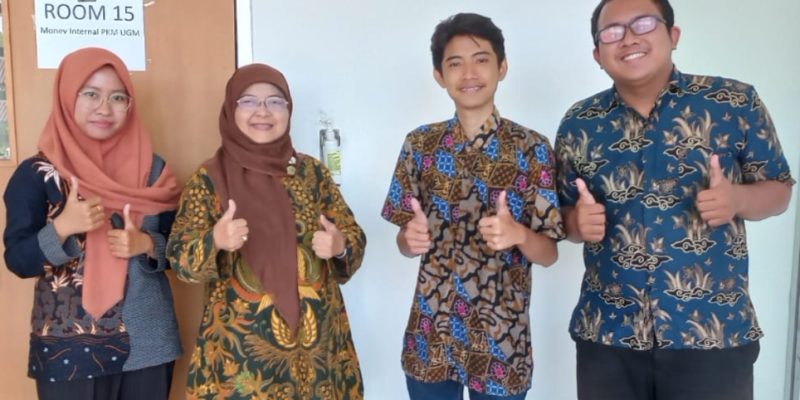The black orchid, known as Coelogyne pandurata Lindl., is a rare endemic flora of Indonesia. This orchid can only be found in East Kalimantan and Papua. Its uniqueness lies in its black labellum adorned with green stripes and fur, along with green flower ornaments with triangular-shaped petals. This orchid holds high economic value as an ornamental and rare plant collection. Unfortunately, infrastructure development projects in East Kalimantan have escalated the rate of extinction in the wild. Despite being categorized as Appendix I under the Convention on International Trade in Endangered Species (CITES) and protected by the Presidential Regulation of the Republic of Indonesia No. 7 of 1999, this orchid faces challenges.
In light of this, three UGM students, part of the UGM 2023 PKM-RE Team funded by the Ministry of Education, Culture, Research, and Technology, namely Anisa Dewi Rahayu, Lathief Al Umami, and Shiddharta Arya Anggoro Cen from the Faculty of Biology, with their supervising professor, Prof. Dr. Endang Semiarti, M.S., M.Sc., are undertaking ex situ conservation through micropropagation using Temporary Immersion Systems (TISs) technology.
The application of TISs technology represents a cutting-edge method to accelerate the growth and development of the black orchid. Its advantages include the elimination of subculturing, optimal aeration, and prevention of hyperhydration. The innovative integrated sensor system of TISs facilitates the monitoring of environmental parameters such as pH, temperature, humidity, light intensity, and carbon dioxide levels. Lathief explains that the development of the TISs device, equipped with real-time sensors, is controlled by an Arduino Uno to facilitate environmental parameter regulation. The sensor measurements of environmental conditions are displayed on an LCD display. Shiddharta adds that the incubation chamber design at the top, serving as a space for explants from seeds to plantlets, can be flexibly adjusted according to needs without the need for modifying the sensor and actuator system.
Anisa elucidates that the application of the integrated sensor TISs on black orchid plantlets in the UGM Biology Biotechnology Laboratory has proven to accelerate growth parameter increments. This application initiates the development of modern and efficient ex situ conservation efforts for other endangered plants, leading to the production of higher-quality plants with minimal production costs.



